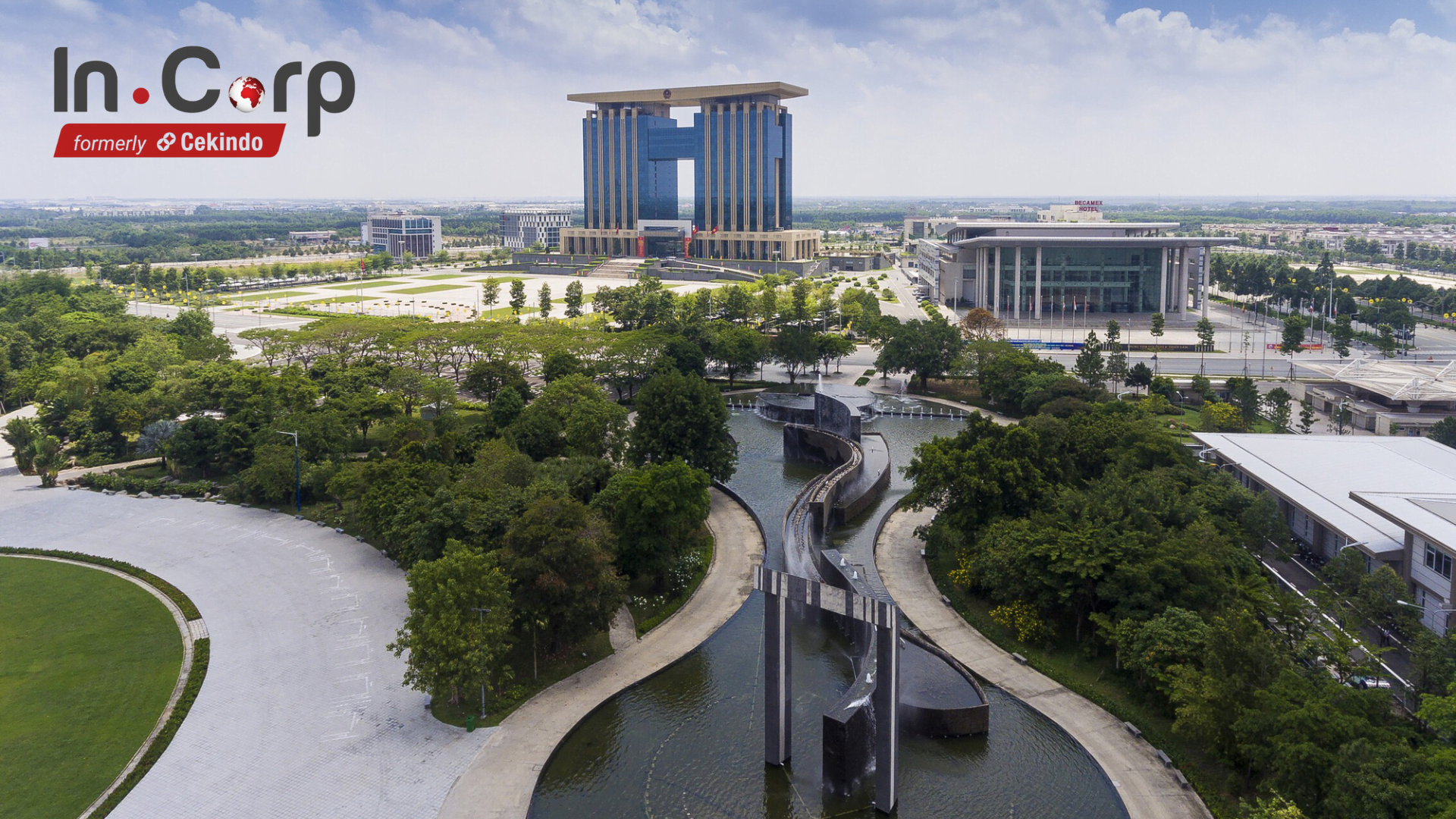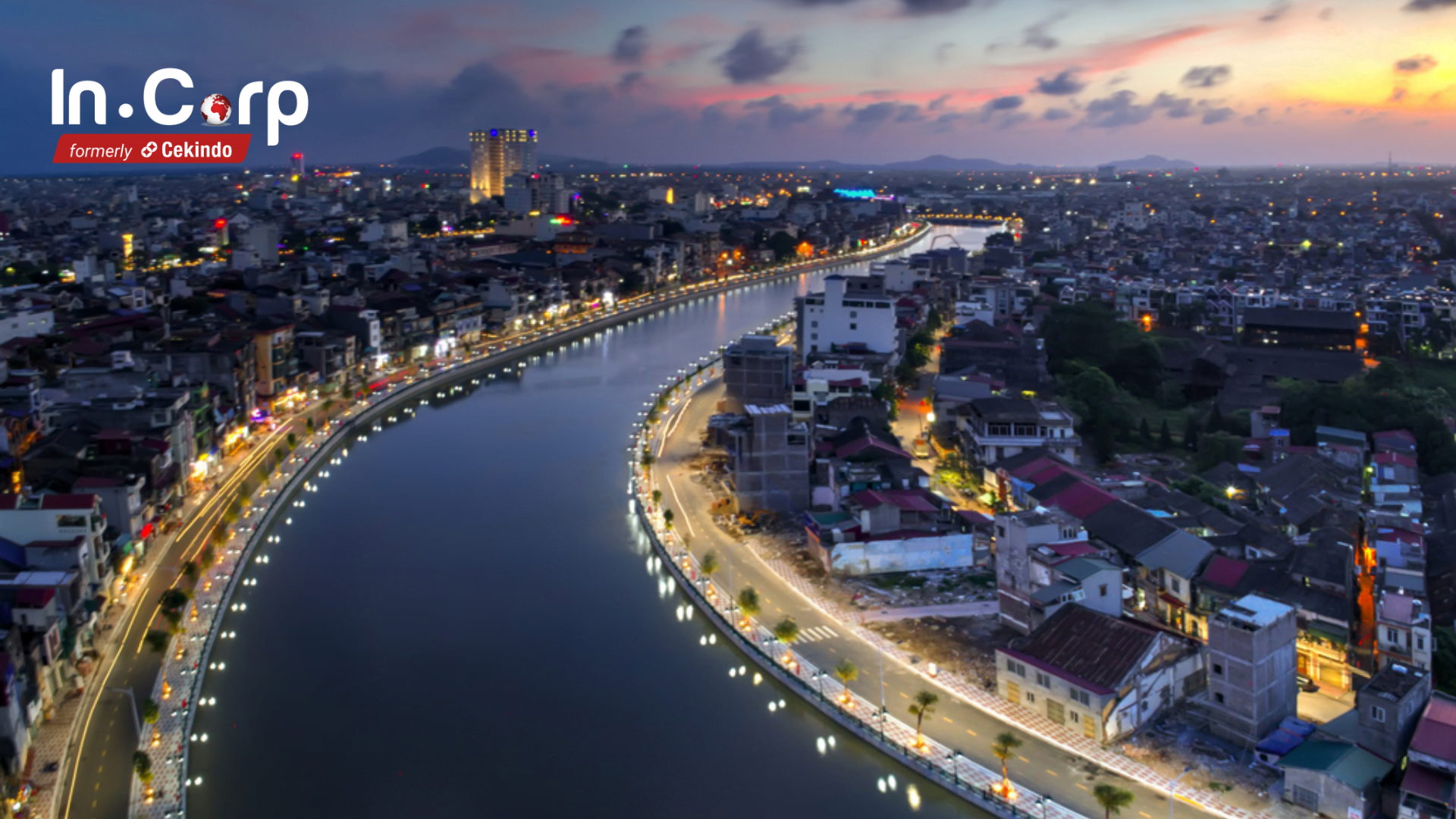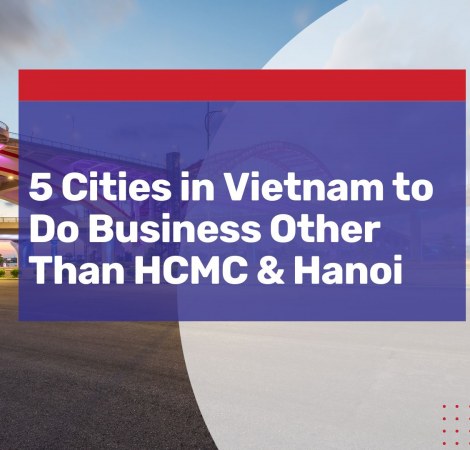Find Out About InCorp’s Incorporation Services to Help You Set Up Anywhere in Vietnam
More Vietnamese cities are creating chances that are as alluring to foreign investors as the country’s two main cities, thanks to the country’s favorable incentives, cheap labor costs, safe political environment, hopeful economic outlook, and free trade agreements. We have produced a list of the top five cities in Vietnam where you should consider doing your business based on national consensus and research findings.
Da Nang
One of the top five commercial hubs in Vietnam is Da Nang. It serves as an entryway to the quickly industrializing Central Region. The metropolis of 1.188.000 people has undergone a significant economic change in recent years with an emphasis on healthy urban growth. At current prices, Da Nang’s GRDP in 2022 was more than 125 trillion VND. Da Nang also has an international airport with excellent links and a shipping port.

Da Nang’s Competitive Industries
Retail
Da Nang is a popular shopping location, and the city’s native retail sector is growing. The town is home to local and foreign stores like WinMart and Lotte Mart. Additionally, because of the increase in international residents and workers in the city, there are more specialized marketplaces, such as those for furniture and preserved foods.
Hi-tech manufacturing
In reaction to the government’s drive in this direction, several companies, including the EU-based ABB, have negotiated with local authorities to assist Da Nang in becoming a smart city. To track data and meet the needs of intelligent communities, there is a demand for high-tech devices like chips and physical devices linked to ICT.
IT
International and local IT companies are drawn to Da Nang. One of the best places in Vietnam for developing the software and IT sectors is the metropolis. Of the 700 businesses in the area, about 43 percentare focused on outsourcing and software creation.
Advantages of doing business in Da Nang
- Well-trained labor force: More than 51% of the populace of Da Nang is employed. The city’s expanding educational choices have primarily helped its young, dynamic workforce and the area’s thriving economy.
- Infrastructure: Broad roadways, important thoroughfares, seaports, and an airport link Da Nang to the rest of Vietnam and other Asian nations. The seamless connectedness of the synchronized transit network promotes the growth of business ventures and investments.
Disadvantages of doing business in Da Nang
- Small population size: Hanoi and Ho Chi Minh populations are more significant than Da Nang. Companies may need help to bring in fresh clients.
- Other industries besides science and technology may find it difficult to hire qualified workers: Due to the market’s rapid expansion, Da Nang needs more training centers to meet the demand.
RELATED: Danang’s Industrial Park: Your Alternative Investment Destination
Bac Ninh
With a population of 1.5 million, Bac Ninh is one of the busiest towns in Vietnam to conduct business. Bac Ninh, which began as a tiny farming community, has grown into a major manufacturing center with Vietnam’s second-highest per-individual income and one of the country’s quickest economic development rates. The economy of Bac Ninh is still expanding well and more quickly than anticipated. In the first three quarters of 2022, Bac Ninh’s gross regional domestic product (GRDP) increased by 10.04 percent, reaching a projected total of 105.13 trillion Vietnamese dongs (443 billion USD).
Competitive industries in Bac Ninh
Electronics
Bac Ninh has the necessary advantages and enabling elements for manufacturing smartphones and wearables, including industrial zone facilities and land, a skilled workforce, and favorable business operating procedures and policies.
Industrial Automation
The region of Bac Ninh is believed to have 86% of high-tech industrial goods. The electronics industry accounts for more than 80% of the value of manufacturing output. The region uses the new change in investment destinations, from industrial development centers, applied research and transfer centers, and constructing information technology parks, based on the available resources.
Advantages of doing business in Bac Ninh
- Geographical position: Transport to seaports, brand-new international airports, and the Mong Cai global boundary crossing is made simple by the traffic system.
- Potential to develop industrial real estate: 87% of the total industrial land is occupied in the northern core region’s different provinces, and there is 20.567 ha that is open for sale, up 2.35% annually.
Disadvantages of doing business in Bac Ninh
- Limited infrastructure: Bac Ninh is a relatively small province in Vietnam, which means that the infrastructure in the area may be limited compared to larger cities or regions. This could make transporting goods more difficult, accessing reliable internet and telecommunications, and finding appropriate office or manufacturing space.
- High competition: Bac Ninh is home to many well-established companies, which means new businesses may face significant competition in the local market. Establishing a solid customer base and growing your business could take time and effort.
Binh Duong
Vietnam’s Binh Duong province, home to 2.955 million residents, is increasingly becoming a favorite for foreign investors to do business. With 30 industrial zones, the region is second only to Ho Chi Minh City in attracting FDI. According to a report by Bao Dau Tu, Binh Duong’s gross regional domestic product (GRDP) grew by 7.91% during the first nine months of 2022 compared to the same time in 2021.
Competitive industries in Binh Duong
Technology
A turning moment in Binh Duong’s economy’s evolution is the high-tech sector’s expansion. The province and local companies are currently working on expanding the area’s high-tech industrial park count.
Agriculture
The province of Binh Duong is transitioning to high-tech agriculture. Special laws are in place to support and promote the robust implementation of recent scientific and technological developments to increase output.

Advantages of doing business in Binh Duong
- Strategically great location: The southern central economic zone, which is expanding at a pace that is 1.5 times faster than the country, is home to Binh Duong.
- Sustainable development: To become one of the best Vietnamese regions with global competence in luring, educating, and growing scientific and technological talent, Binh Duong has also created a smart city project
Disadvantages of doing business in Binh Duong
- Lack of human resources in specific areas: Some Binh Duong regions experienced a severe labor scarcity, leaving other locations with a sparse workforce due to the influx of workers into crucial industrial parks.
RELATED: Hanoi & Ho Chi Minh City will be Vietnam’s Two Sustainable Cities
Hai Phong
The population of Hai Phong, a port community for conducting commerce in northern Vietnam, is 1.382.000, a 3.06% rise from 2021. The Hai Phong City Party Committee’s study projects that in 2022, the province’s economy will expand by 12.32% and reach a size of over 365 trillion VND. It has become increasingly attractive to domestic and foreign investors due to its collaborative and modern development in socio-economic sectors, transit, urban infrastructure, and business and investment environment.
Industries
Automotive
For traditional goods like trucks under 10 tonnes, the car manufacturing sector in Hai Phong continues to expand at a typical pace. Furthermore, due to the Vinfast car production complex’s construction, Hai Phong experienced significant development in 2019 and 2020.
Advantages of doing business in Hai Phong
- Strategically Great Location: A crucial commerce entryway for the North’s important economic area in Hai Phong. Hai Phong’s favorable physical position on the shore and near the capital and most significant city in the North, Hanoi, makes it the country’s most influential industrial, service, economic, scientific, and commerce hub.
- Development policies and Investment Incentives: State strategy favors the port metropolis. To encourage real estate growth, the governments of Vietnam and Hai Phong City have enacted favorable policies. Additionally, policies help attract significant local and international investment.
Disadvantages of doing business in Hai Phong
- Expensive building materials: Steel prices have been steadily rising due to the rise in the cost of raw materials and fuels used in steel manufacturing. In particular, steel prices have climbed seven times since the beginning of 2021, amounting to an increase of 2.4 million VND/ton, from 16.5 to 17 million VND/ton to more than 19 million VND/ton.

Phu Quoc
With a population of roughly 103,000 people, Phu Quoc is the most extensive and populous island in Vietnam, making it the best place to conduct business there. Phu Quoc has witnessed exponential development in recent years and is now one of the fastest-growing localities in Vietnam, with the tourism sector acting as the island’s economic backbone.
Competitive industries in Phu Quoc
Tourism
Due to the island’s breathtaking beaches, untamed forests, comfortable year-round temperature, and quickly growing infrastructure for luxury travel, tourism dominates Phu Quoc’s economy.
In 2019, Phu Quoc’s tourist industry experienced its finest year yet. Phu Quoc received 5.1 million visitors, a 26.9% increase over the prior year. As a result, travel generated VND 5.700 billion (USD 247.6 million). About 70% of residents work in this industry.
Advantages of doing business in Phu Quoc
- Mild climate: The typical weather in Phu Quoc’s temperature environment, which is pleasant all year long, is between 25 and 27 degrees Celsius. This has a very beneficial effect on the tourist industry in Phu Quoc.
- The “Silk Road”: The “Silk Road” of Phu Quoc would connect the island’s significant settlements and regions with the brand-new South Phu Quoc tourist destination. A recently built province road 975 with four traffic lanes connects popular tourist locations like Duong Dong town, the international airport, An Thoi town, and Phu Quoc in minutes

Disadvantages of doing business in Phu Quoc
- Phu Quoc is in the early stage of development: Phu Quoc is heating up with billion-dollar outcomes and especially the fierce rivalry between famous domestic and foreign giants. Phu Quoc must overcome several limitations and hurdles to build an image as a top-notch resort and tourist location on a regional and worldwide scale.
- Emerging environmental prolems:
- Environmental problems are becoming increasingly urgent and worrisome. The danger of environmental pollution in Phu Quoc is increasing due to anthropogenic impacts from socioeconomic development activities and the influences of natural catastrophes like climate change.
About Us
InCorp Vietnam is a leading provider of global market entry services. We are part of InCorp group, a regional leader in corporate solutions, that encompasses 8 countries in Asia-Pacific, headquartered in Singapore. With over 1,100 legal experts serving over 15,000 Corporate Clients across the region, our expertise speaks for itself. We provide transparent legal consulting, setup, and advice based on local requirements to make your business perfectly fit into the market with healthy growth.
Don’t take our word for it. Read some reviews from some of our clients.
